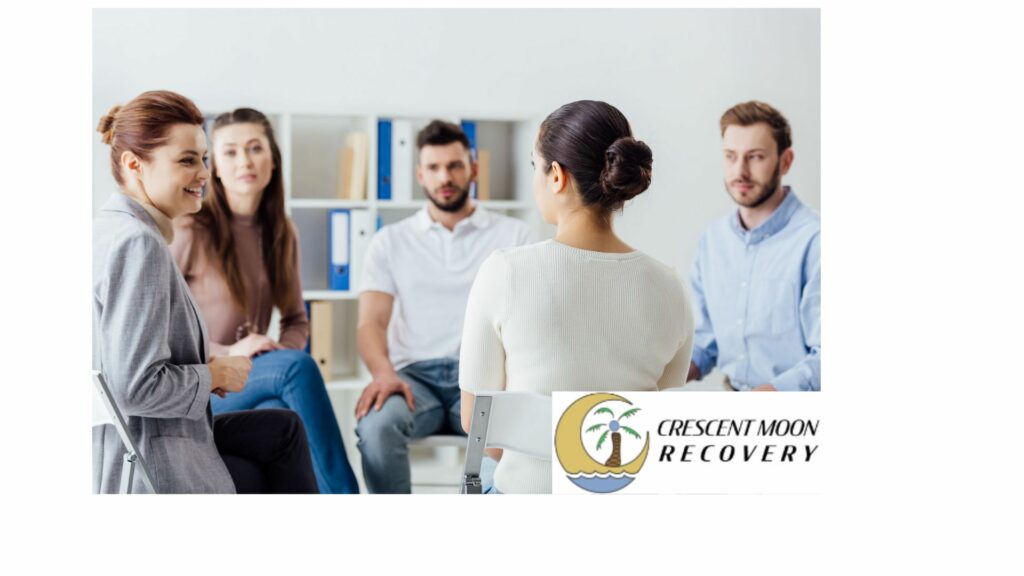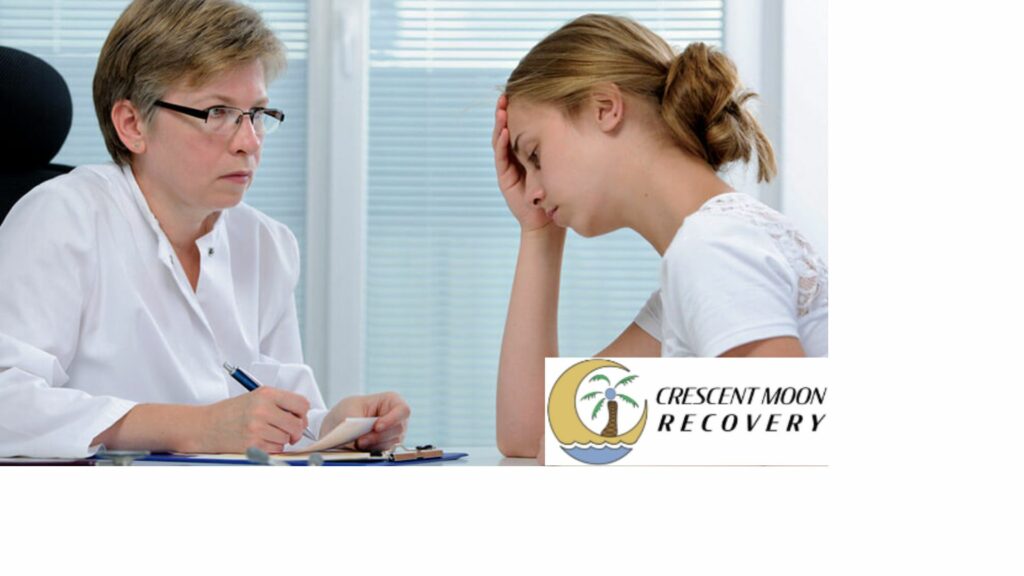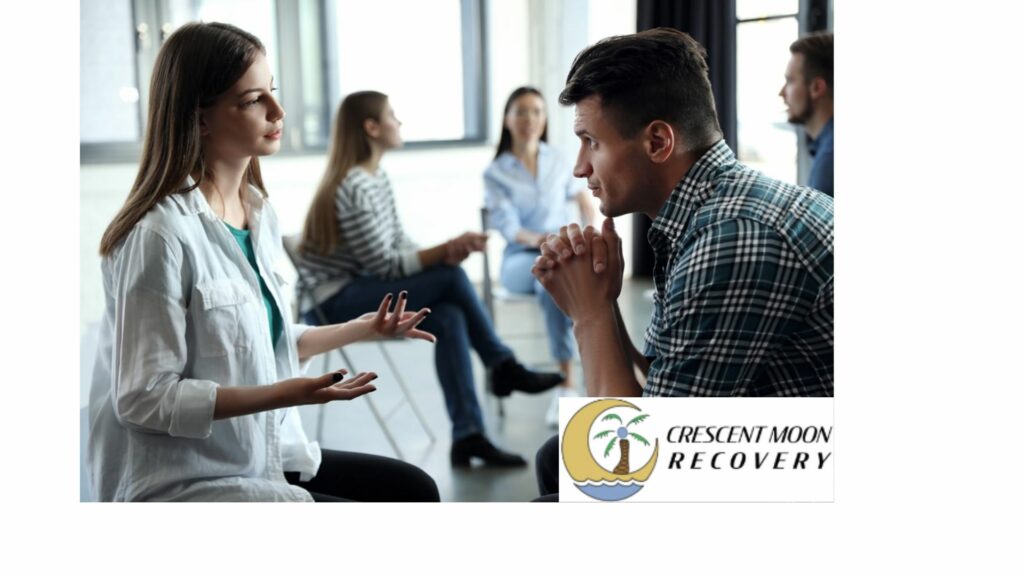
Every year in America, thousands of communities are affected by the damage caused by substance use disorders (SUDs). According to the Substance Abuse and Mental Health Services Administration (SAMHSA), “Marijuana is the most commonly used illegal substance in the U.S. and its use is growing.” Research has shown that “Approximately 1 in 10 people who use marijuana will become addicted. When they start before age 18, the rate of addiction rises to 1 in 6.” Younger individuals have a much higher risk of developing marijuana use disorder (MUD). The physical effects of the drug are especially noticeable in young adults who frequently misuse the substance. Crescent Moon Recovery has programs for men and women struggling with marijuana addiction.
Marijuana is a substance made from dried buds and other parts of the cannabis plant. Some cannabis plants contain significant amounts of tetrahydrocannabinol (THC). According to the National Center for Complementary and Integrative Health (NCCIH), “THC is the substance that’s primarily responsible for the effects of marijuana on a person’s mental state.” How marijuana is used can determine how potent the effects are and how long they last. In addition, second-hand exposure to the drug can lead to a contact high which usually causes mild, short-term side effects.
The drug can be used in several ways, including:
If marijuana is eaten or mixed into a drink, it will stay in the body’s systems longer, and the effects will be more pronounced.
Marijuana is a highly addictive substance that many people regularly misuse. Both medically prescribed marijuana from legal dispensaries and versions of the drug found on the street are routinely misused by people of all ages and walks of life.
Social acceptance of marijuana use and abuse has increased in the last few decades, making it the most frequently misused substance in the country. Unfortunately, few people are aware of the possible side effects, leaving many vulnerable to severe adverse reactions.
Typical forms of misuse include:
Marijuana often relaxes people, making it a prevalent form of self-medication for anxiety-related disorders and trauma-related conditions like post-traumatic stress disorder (PTSD). The misuse of marijuana can lead to various side effects that range from mild to severe. Ironically, over-use of marijuana can lead to paranoia, anxiety, and psychosis. A common misconception is that you cannot abuse prescription marijuana. However, that is not true. Individuals with a prescription for medical marijuana can still misuse it if they take a higher dose than prescribed or otherwise disregard instructions provided by their doctor.

Measurable levels of marijuana can remain in the body for several weeks. Even if a person only takes it once at a small dose, it can stay in their system for several days and continue to affect various systems in their body. How frequently the drug is used and at what dose will determine how long it stays in your system.
Marijuana can have adverse effects, including the following:
The previously mentioned research reported by the NCCIH noted that “The FDA has warned the public not to use vaping products that contain THC [because] products of this type have been implicated in many of the reported cases of serious lung injuries linked to vaping.” Various forms of marijuana use have become more socially acceptable in recent years. However, communities are not being educated about the risks of this type of substance misuse, especially in children and young adults. The lack of awareness in communities and families affected by marijuana has caused a steady increase in SUDs.
Anxiety and depression are two of the most common symptoms of substance use disorders (SUDs) and related mental health conditions. Many people use the relaxing and mood-altering effect of marijuana to self-medicate and cope with everyday stressors. Although this might appear to work in the short-term, it can have devastating long-term consequences, including:
In addition, self-medicating using marijuana can actually increase the severity of some mental health symptoms, including those related to schizophrenia, paranoia, and anxiety. There are safer alternatives available for individuals who use marijuana to treat chronic conditions. Speak with your doctor today or reach out to Crescent Moon Recovery to learn more about how to recover from addiction involving marijuana.
Some common co-occurring disorders include:
According to research published by the National Institute on Drug Abuse (NIDA), studies indicate that some people who are “smoking high-potency marijuana every day could increase the chances of developing psychosis by nearly five times compared to people who have never used marijuana.” Younger individuals under the age of 21 are more likely to experience long-term or permanent issues related to marijuana misuse.
Focused mental health treatment decreases the risk of relapse and can reduce the severity of related symptoms. MUD is often treated alongside co-occurring mental health issues like anxiety, depression, or trauma-related disorders. The programs at Crescent Moon Recovery address all currently active conditions and their underlying causes using various therapeutic methods and integrative treatment.
We collaborate with each program participant to determine recovery goals and personal preferences. By tailoring the program to meet the needs of each individual, we ensure that all participants receive the support they need to achieve a successful outcome.
To treat SUD and dual diagnosis, we offer the following:
Therapeutic techniques can be combined and integrated with other forms of care to provide better support. Some individuals with co-occurring disorders may react more positively to alternative therapies we use as part of our holistic care.
Mindfulness-based techniques and other alternative therapies complement traditional psychology and medication-assisted treatment (MAT) for individuals in treatment for SUD. Marijuana detox and withdrawal are usually mild and do not always require partial hospitalization programs (PHP) or other inpatient care.
For individuals who choose intensive outpatient programs (IOP), Crescent Moon Recovery offers the following holistic treatments:
Most of the warriors we treat who are battling addiction have specific activities or interests they can use to focus their healing and growth. We collaborate with every person to determine what holistic approach best fits their preferences and needs. Feeling connected to the various aspects of treatment can assist in the healing process, and finding the right motivation for change can last a lifetime.
An essential part of treatment in any rehabilitation program involves determining long-term and short-term recovery goals. Motivation for achieving these goals fuels change and personal growth during the healing process. Specific objectives are easier to work toward because they allow participants to track their progress, and clinicians can adjust their treatment as needed to achieve those goals. A few ways our team will work to determine what treatments would be the best include:
Lasting change is possible once you understand why you react in specific ways and the effects of substance misuse on your life. Motivational interviewing and other therapeutic methods can provide valuable insight into maladaptive thoughts and behaviors. According to Addiction Science and Clinical Practice, clinicians treating marijuana addiction use various therapeutic techniques including “using strategic expression of empathy, reflecting, summarizing, affirming, reinforcing self-efficacy, exploring pros and cons of drug use, rolling with resistance, and forging goals and plans to achieve them.” Crescent Moon Recovery encourages long-term recovery by providing the following services and programs:
Recovery is a journey. Detox, withdrawal, and rehabilitation treatment are the beginning of a lifelong choice to remain sober. Learn more about the services we offer by visiting our Treatment Programs page.
Many people are unaware that addiction involving marijuana can cause devastating effects on personal relationships, career development, and financial stability. The severest symptoms are often unexpected and can be misdiagnosed at first if the individual does not realize marijuana played a role. Some common misinformation often shared about marijuana include:
All of those statements are false. Marijuana can significantly impact your physical safety, mental health, and the well-being of your loved ones. Unfortunately, stereotypes portrayed in the media often present marijuana misuse in a lighthearted way without ever highlighting the dangers of misusing the drug.
An excellent way to combat stigmas and misinformation is by educating yourself and your community about the realities of addiction and marijuana misuse. You can share your journey with others, including peers and loved ones, to show them the actual impact marijuana misuse can have on every aspect of life.
If someone you love is struggling with addiction related to marijuana misuse, you can take steps to help them get treatment. Interventions are a popular option for families who want to participate in their loved one’s recovery. You can contact our admissions office at Crescent Moon Recovery to get more information on interventions and whether your loved one would benefit from one of our treatment programs.
Support your loved one through the rehabilitation process and ease the transition to independent sobriety by being part of their support system before and during aftercare. Find out more by reaching out today.

Marijuana misuse can interfere with all areas of your life. Crescent Moon Recovery is here to help. Learn more about our evidence-based treatment options by calling us today at (714) 464-8474.
© 2024 Crescent Moon Recovery: Alcohol & Drug Rehab Centers Orange County, LLC. All Rights Reserved.